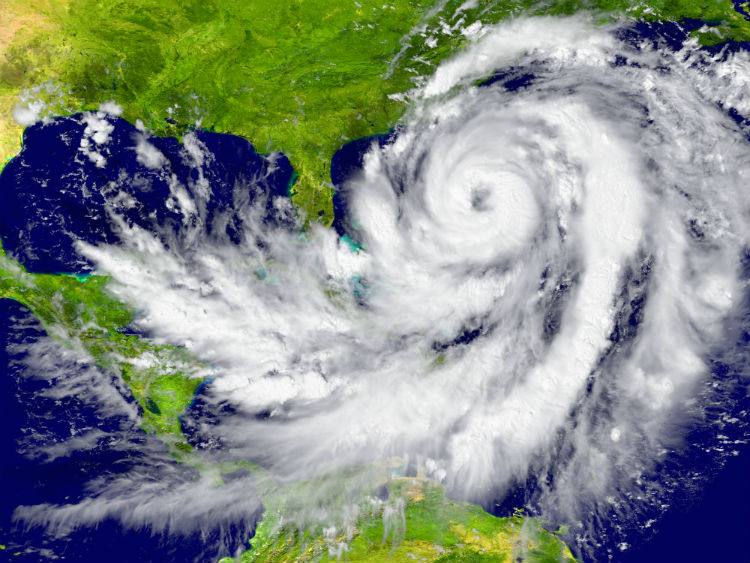When a major disaster occurs, your community and your family's lives can change in an instant. When natural disasters, such as floods, fires, earthquakes, tornadoes, hurricanes, tsunamis and nuclear power plant explosions strike, they affect thousands of people every year. Equally as dangerous and unexpected are man-made threats: bombs, terrorist attacks and chemical warfare.
Here are some precautions to take to prepare your family, including elderly loved ones, for a disaster.
1. Learn about Potential Threats
Learn what disasters or emergencies may occur in your area. These events can range from those affecting only your family, like a home fire or medical emergency, to those affecting your entire community, such as an earthquake or hurricane, depending on your geographical location.
2. Locate Community Resources
Identify how local authorities will notify you during a disaster, whether through local radio, TV or NOAA Weather Radio stations. Learn about community response plans, evacuation plans, and designated emergency shelters. Familiarize yourself with NOAA weather alerts such as watches and warnings and what actions to take in each.
3. Plan Escape Routes
Identify two ways to escape from every room. Practice your escape plan at least twice a year. Identify responsibilities for each member of your household and plan to work together as a team. Select a safe location away from the home where your family can meet after escaping.
Purchase escape ladders for rooms above ground level. If you see smoke or fire in your first escape route, use your second way out.
4. Establish a Communication Plan
Your family may not be together when disaster strikes, so plan how you will contact one another. Think about how you will communicate in different situations.
5. Make an Emergency Kit
You may need to survive on your own after a disaster. You can purchase a Red Cross emergency preparedness kit online or build your own. Assemble a disaster recovery kit and make sure everyone in the home knows where it is.
Emergency Kit Checklist
- Three-day supply of non-perishable food
- Three-day supply of water - one gallon of water per person, per day
- Portable, battery-powered radio or television and extra batteries
- Flashlight and extra batteries
- First aid kit and manual
- Sanitation and hygiene items (moist towelettes and toilet paper)
- Matches in a waterproof container
- Extra clothing
- Blankets
- Basic kitchen accessories and cooking utensils
- Manual can opener
- Multi-purpose tool, such as a Swiss army knife
- Photocopies of credit and identification cards
- Cash and coins
- Special needs items, such as prescription medications, eye glasses, contact lens solutions, and hearing aid batteries
- Cell phone with charger
- Whistle
- Extra set of car and house keys
6. Maintain Your Disaster Supply Kit
Just as important as putting your supplies together is maintaining them so they are safe to use when needed. Here are some tips to keep your supplies in good condition:
- Keep canned foods in a dry place where the temperature is cool
- Store boxed food in tightly closed plastic or metal containers to protect from pests and to extend its shelf life
- Throw out any canned items that becomes swollen, dented, or corroded
- Write the date on all containers you store. Use foods before they go bad, and replace them with fresh supplies.
- Re-think your needs every year and update your kit as your family needs change
- Keep items in airtight plastic bags and put your entire disaster supplies kit in one or two easy-to-carry containers
7. Make Emergency Contact Cards
Complete an emergency contact and health card for each family member and keep the cards handy in a wallet, purse, backpack, etc. Include information about medications, adaptive equipment, blood type, allergies, immunizations, and communication difficulties, as well as emergency contact information.
8. Learn CPR
Make sure that at least one member of your household is trained in first aid and CPR and knows how to use an automated external defibrillator (AED).
9. Check Fire Extinguishers
Keep fire extinguishers in many rooms and mark your calendar with their expiration dates so you can recharge or replace them as needed.
10. Make Copies of Important Papers
Duplicate important documents -- such as passport, drivers license, social security card, wills, deeds, financial statements, insurance information, marriage license and prescriptions -- and keep copies off-site, either in a safety deposit box or with someone you trust.
11. Consider an Elder's Special Needs
Elders and people with disabilities must take additional precautions.
- Personal Care Assistance: If your parent receives assistance from a home healthcare agency, find out how they respond to an emergency. Designate backup or alternative providers that you can contact in an emergency.
- Wheelchairs: If your parent is in a wheelchair or has mobility problems, plan for how he or she will evacuate and discuss it with your care providers. If you use a motorized wheelchair, have a manual wheelchair as a backup.
- Blind or visually Impaired: Keep an extra cane by the bed and attach a whistle to it. Remind your parent to exercise caution when moving, as paths may have become obstructed.
- Hearing Impaired: Keep extra batteries for hearing aids with emergency supplies. Store hearing aids in a container attached to the senior's nightstand or bedpost, so they can be located quickly after a disaster.
12. Plan for Pets
Keep a phone list of pet-friendly hotels/motels, veterinarians and animal shelters that are along your evacuation routes.
